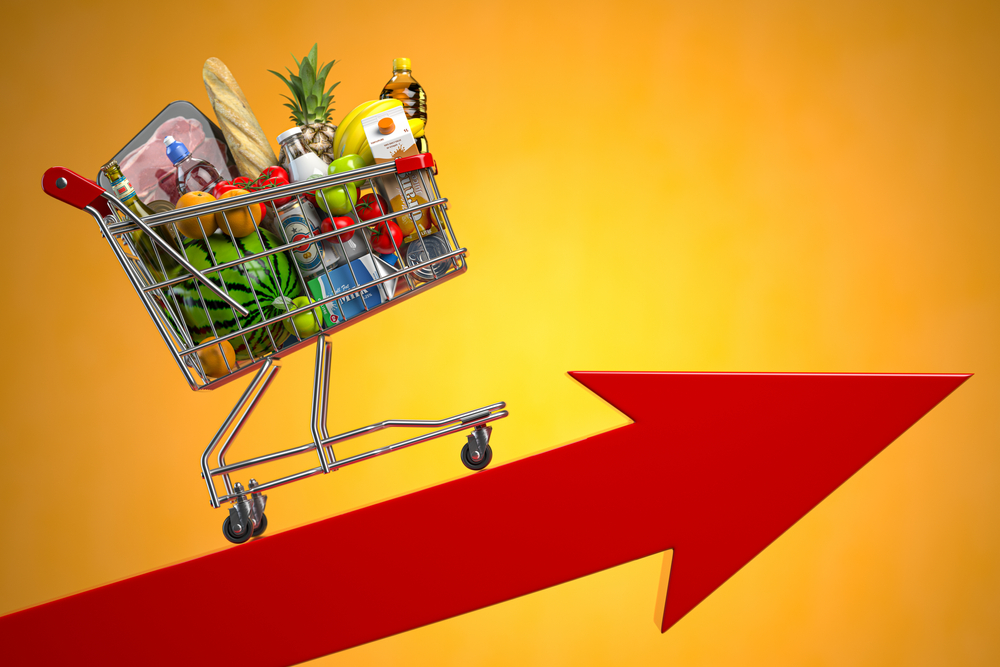Household Bills
‘Relief’ as inflation falls below 10% but what does it mean for your money?

Inflation has dipped to 9.9% in the year to August from the eyewatering 10.1% recorded in July. Will your bills fall as a result?
The Consumer Prices Index (CPI) measure of inflation rose by 9.9% in the 12 months to August, according to the Office for National Statistics (ONS).
This is below the 10.2% consensus and is the first fall in the figure since 2021.
The ‘surprise’ dip from the 10.1% recorded in July comes off the back of fuel prices falling 14.3p per litre. Drivers saw a 6.8% fall in fuel prices over the month which reduced fuel inflation from 43.7% to 32.1%.
According to Paul Dales, chief UK economist at Capital Economics, “with the oil price now just above $90 a barrel, fuel prices will fall further in the coming months”.
Inflation ‘to peak at 11%’
Given new Prime Minister Liz Truss’s £2,500 energy price guarantee over the next two years, industry analysts suggest it was “a move that should shave several percentage points off CPI in the months ahead”.
As such “the good news is that inflation should not edge up much more from here,” Alice Haine, personal finance analyst at DIY platform and coaching service Bestinvest, said.
However, in the near term, Dales said inflation will peak at around 11%, though he added: “The government price freeze means that utility price inflation will slump from 69.7% now to zero by October next year.”
But the ONS noted that rising food prices made the largest upward contribution to the change in the rates. Food and non-alcoholic beverage prices rose by 13.1% in the 12 months to August, up from 12.7% in July and have risen for 13 consecutive months to take the rate to its highest since August 2008.
Separate data from analyst firm Kantar this week revealed grocery price inflation hit a fresh record in August, adding £571 to the average shopper’s bill.
‘Lowest income households suffer the most’
For Sarah Coles, senior personal finance analyst at Hargreaves Lansdown, while petrol prices have put the brakes on runaway inflation, these “tend to be more of a concern for those on higher incomes” as these drivers “may own more cars, drive more, and favour bigger gas-guzzlers”.
She said: “Those on the lowest incomes, who are suffering the most as a result of rising prices, are still facing impossible energy bills and horrible hikes in the cost of food.”
Coles added: “Core inflation – which strips out energy and food prices which are at the mercy of global markets – has risen very slightly to 6.3%. This is worth noting, because it will influence the thinking of the Bank of England: this is the inflation it is trying to control through raising interest rates. The fact it has crept up very slightly, despite rate rises, is likely to mean the pressure to raise rates again doesn’t ease significantly when the Bank meets to discuss rates next week.
It is expected that the Bank will raise the base rate by 50 basis points to 2.25%.
Wages still dropping
Elsewhere, wages are also failing to keep up with inflation and the cost of living. Haine explained: “While regular pay rose 5.2% on the year in the May to July period, when taking inflation into account it fell 2.8%, meaning workers’ salaries simply don’t stretch as far.”
While households are already cutting back and turning to budget goods, ‘wiggle room’ for unexpected expenses is falling. However, Haine points out that ‘personal inflation’ means Brits may experience inflation at a lower rate than the headline figure as the ONS figures are based on a basket of 700 goods and services that typical households buy.
For savers, no standard accounts beat inflation but with the consecutive base rate hikes, savers are seeing the highest rates in a decade, with a one-year bond climbing to 2.29%, according to Moneyfacts data.
Meanwhile for pension savers, high inflation weakens spending power, with Brits looking to cover everyday bills as a priority. “But it is far more prudent to make cutbacks elsewhere as money directed towards pensions and investments has the potential to beat inflation over the long-term,” Haine said.